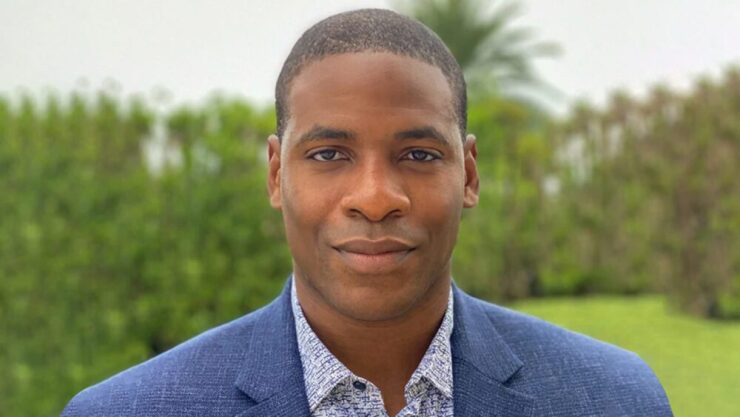With professional athletes
But it's not just rampant scams that athletes should be wary of. There's also a crying need for young athletes to
This is perhaps true for no one more than for players in the National Football League, where the average salary approaches $3 million a year but the average career
Ogunleye is in as good a position as anyone to understand the sorts of dilemmas and temptations that life in the big leagues can present. He enjoyed an 11-season career in the NFL, playing as a defensive end in Miami, Chicago and Houston before retiring in 2010.

He joined UBS in 2019 and now helps oversee a team of 28 advisors who guide athletes and other entertainers through difficult financial decisions.
READ MORE:
"When the earning potential is short lived, and any catastrophic mistake made early on will be multiplied — because you're not going to make this kind of money as you get older — it's really imperative that these athletes get it right the first time," Ogunelye said. "Because this is probably going to be the only time that they're going to receive this type of funds."
Preparing players
UBS now joins big names like Goldman Sachs, Morgan Stanley, Alliance Bernstein and Bessemer Trust on the NFL Players Association's list of firms approved to provide financial advice to current and retired pro footballers. Brandon Parker, the senior manager of the player union, said UBS was appealing because of its special division dedicated to helping athletes and artists.
"And the fact that they have a former player heading it up gives a sense of comfort to the players who may get involved with them," Parker said.
UBS started its Athletes and Entertainers Strategic Client Segment in 2020 after recognizing a far-reaching need for professionals who can help athletes and other entertainers, often young and inexperienced, cope with the pressures and temptations of newfound wealth. Since then it has helped air two television programs on the athlete-controlled PlayersTV — one of them a "reality TV" show in which Ogunleye presents the stories of successful athletes-turned-investors.
Ogunleye agreed that the NFL Players Association is probably UBS's biggest client so far for its athletes and entertainers segment. The NFL, after all, is the most
"It does feel good to have a relationship with the NFLPA, knowing that they're trusting us with their players," Ogunleye said. "If you're into sports, this is probably huge. If you're not, it's probably still big because of who the Players Association is and the people they represent."
UBS's biggest competitor in the market for managing athletes' money is Morgan Stanley, which maintains its own global sports and entertainment division. Parker said the addition of UBS as an advisor approved by the NFL Players Association in no way shows dissatisfaction with the other firms on the list. Rather, it was born out of a desire to give players the fullest range of choice possible.
Protecting players
Lou Straney, a regulatory expert at
Straney joined the University of Oklahoma College of Law in March 2022 to organize
READ MORE:
Not only are large amounts of money at stake — the law firm Ernst & Young has estimated athletes
"I'm glad to see firms start to take this seriously," Straney said. "But besides just conducting a marketing initiative, they should be reaching out to schools and organizations to stop it from happening."
Parker said the NFL Players Association's chief means of letting athletes know what services are on offer is through four player representatives it has on hand in each team's locker room. These specially designated liaisons are often older, more experienced teammates who are there to answer questions and help their younger colleagues think a bit more about the future.
"At some point, we hope they will see all the things we offer in our suite of services," Parker said. "And then it's there if they need it."
Ogunleye said it also behooves institutions like UBS to make sure they are not talking over the heads of people who may have never had occasion to make complex financial decisions before.
"We've got to do a better job of meeting our clients where they are, and being able to explain exactly what we do," he said. "We know why it's important for them to listen to the advice that we have, but what about speaking to them in a language that they understand? And I think, too many times, big institutions instead expect these players to meet them where they are."






